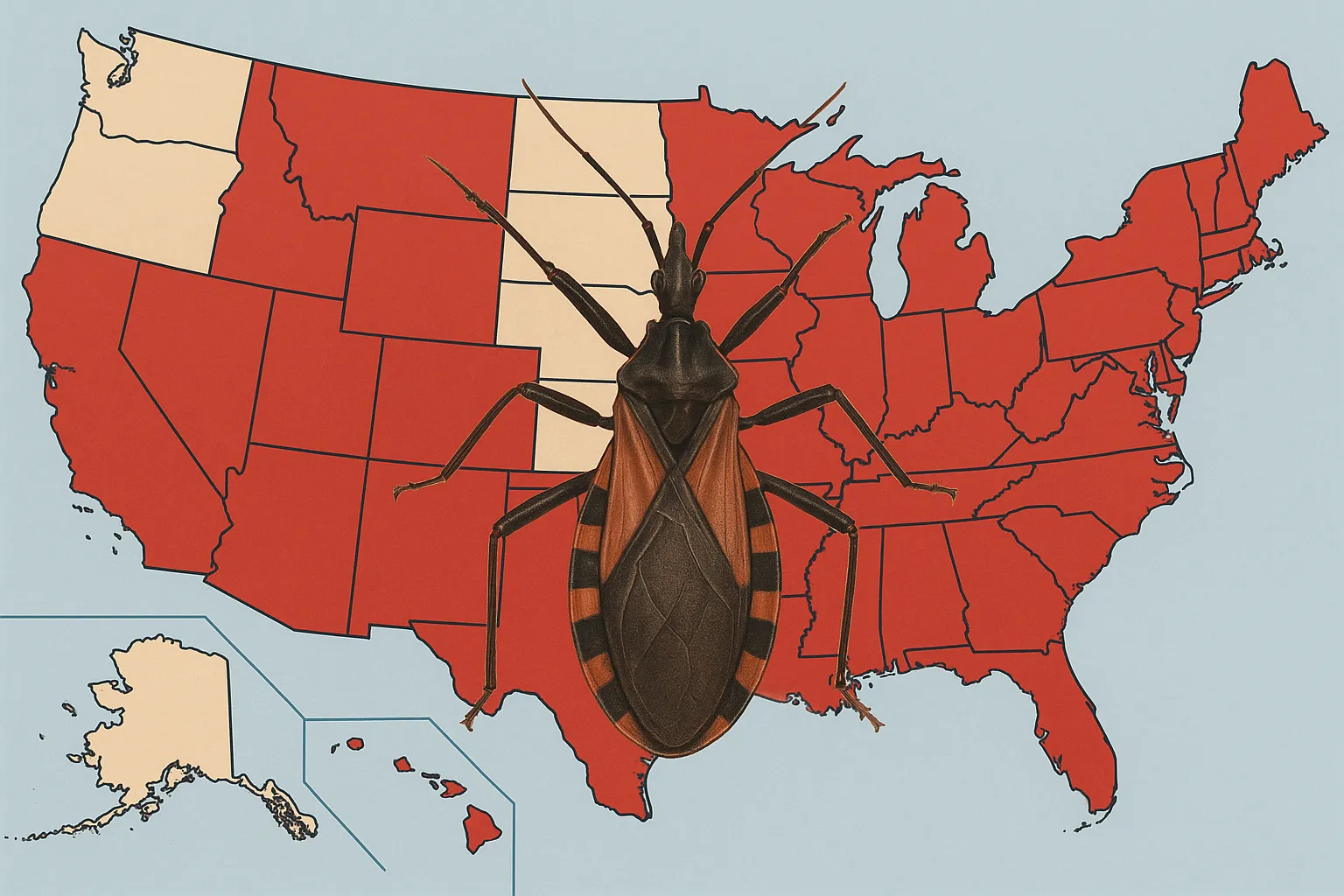CDC Warns Chagas Disease Has Become Endemic in U.S.

Lead A CDC-backed study published today finds Chagas disease-transmitted by “kissing bugs”-is now endemic in the United States, with the insect vector in 32 states and human cases confirmed in eight.
Nut Graf Researchers argue this reclassification is critical to raise awareness, improve diagnosis and treatment, and allocate public health resources to combat a disease long considered foreign but increasingly spreading in American communities.
Rising Threat Across States Kissing bugs carrying the Trypanosoma cruzi parasite have been detected in 32 U.S. states, including California, Texas and Florida, prompting calls to update the non-endemic label. Texas leads with the highest number of locally acquired human infections, followed by California, Arizona, Tennessee, Louisiana, Missouri, Mississippi and Arkansas.
Human and Animal Impact Approximately 300,000 people in the U.S. live with Chagas disease-many unaware of their infection-and up to 31 percent of dogs in some kennels test positive for T. cruzi, signaling widespread animal reservoirs that heighten human risk. In chronic cases, 20-30 percent of infected individuals develop serious cardiac complications, including cardiomyopathy and heart failure.
Transmission and Detection Challenges The parasite spreads when kissing-bug feces enter bite wounds, eyes or mucous membranes; transfusions, organ transplants and congenital transmission also pose risks. Late or missed diagnoses are common due to mild or absent acute-phase symptoms, delaying treatment until irreversible heart or digestive damage occurs.
Urgent Call for Action Authors recommend reclassifying Chagas as endemic to spur improved screening of blood donors and pregnant women, enhanced vector-control programs, and education for healthcare providers and the public. “Labeling the United States as non-endemic perpetuates low awareness and underreporting,” the report warns, urging federal and state agencies to allocate funding for surveillance and research.
Next Steps in Public Health Response
- Expand surveillance to accurately map vector distribution and human cases
- Integrate Chagas screening into routine blood-bank and prenatal testing
- Fund community outreach to educate at-risk populations
- Support development of rapid diagnostic tools and effective treatments
Without swift action to address this “silent killer,” experts caution that Chagas disease will continue to undermine cardiovascular health and strain healthcare systems across the country.
Categories
Autos and vehicles Beauty and fashion Business and finance Climate Entertainment Food and drink Games Health Hobbies and leisure Jobs and education Law and government Other Politics Science Shopping Sports Technology Travel and transportationRecent Posts
Tags
Archives
08/19/2025 (3) 08/20/2025 (40) 08/21/2025 (27) 08/22/2025 (22) 08/23/2025 (4) 08/24/2025 (21) 08/25/2025 (30) 08/26/2025 (24) 08/27/2025 (29) 08/28/2025 (16) 08/29/2025 (9) 08/30/2025 (13) 08/31/2025 (17) 09/01/2025 (167) 09/02/2025 (124) 09/03/2025 (149) 09/04/2025 (112) 09/05/2025 (72) 09/06/2025 (169) 09/07/2025 (162) 09/08/2025 (150) 09/09/2025 (176) 09/10/2025 (194) 09/11/2025 (194) 09/12/2025 (186) 09/13/2025 (207) 09/14/2025 (159) 09/15/2025 (175) 09/16/2025 (198) 09/17/2025 (196) 09/18/2025 (196) 09/19/2025 (207) 09/20/2025 (129) 09/21/2025 (4)